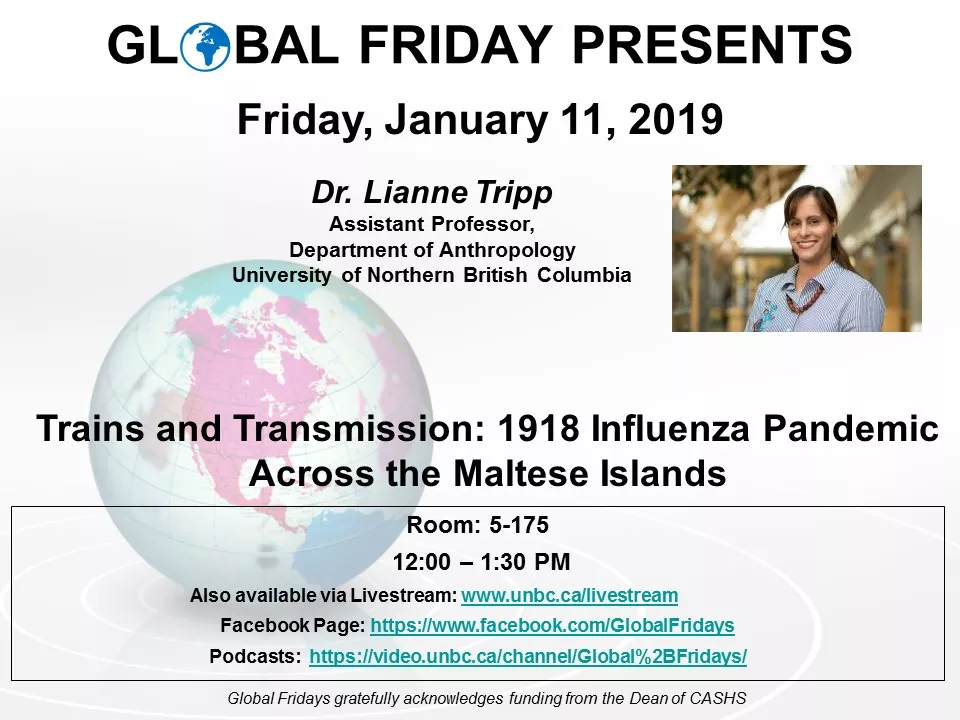Trains and Transmission: 1918 Influenza Pandemic Across the Maltese Islands

Global Friday Presents
Dr. Lianne Tripp
Assistant Professor
Department of Anthropology
University of Northern British Columbia
ABSTRACT: This fall and winter marks 100 years since the 1918/1919 influenza pandemic. It is considered, the last of the “great” pandemics to wreak havoc around the world, killing upwards of 50 million people. Yet, scholars still have much to learn about the variation in the virulence, transmission/spread; and why certain individuals were more susceptible to illness and death. In this presentation, I use the case study of the small-scale but heterogenous populations of the Malta and Gozo, to explore the sources of variability in shaping the morbidity (illnesses) and mortality (deaths) experience during the pandemic. I ask the following questions. What role did children and women (mothers/caregivers) play in the spread and susceptibility of the disease? Why was there variation in the disease experience between the two islands? What impact, if any, did the flu have on births? Was there regional variation (urban vs. rural) within the islands and did the transportation systems play a role in the spread and variation of the disease?
BIO: Lianne is an assistant professor at the University of Northern British Columbia. Dr. Tripp is a biomedical anthropologist whose primary research area focuses on the demography and health of small scale communities. Using both qualitative and quantitative approaches, her study populations are marginalized colonial settings situated in the 19th and 20th centuries. Lianne’s research has examined inter and intra-population variation of the disease experience in the Maltese islands and Gibraltar. Working with local historians and medical researchers, she has gained considerable insight into the interplay of social and biological determinants of population health of these Mediterranean communities.
Her areas of interest include infectious diseases and epidemics. As such, her research topics have covered an array of infectious diseases: cholera, influenza, tuberculosis and undulant fever (also known as brucellosis).
Also available via Livestream
Global Friday gratefully acknowledges funding from the Dean of CASHS.